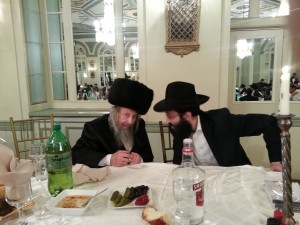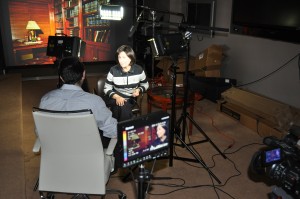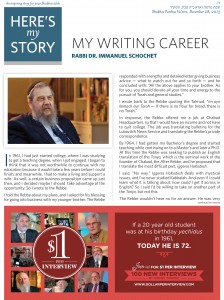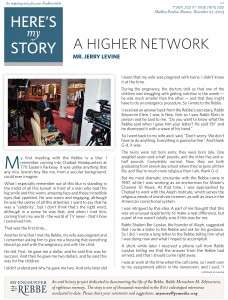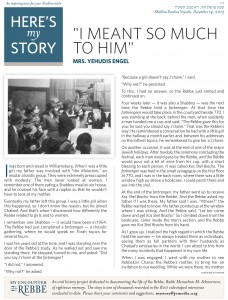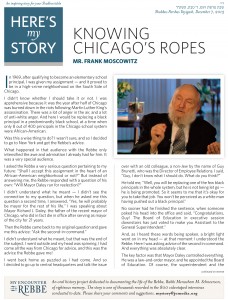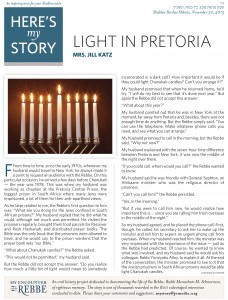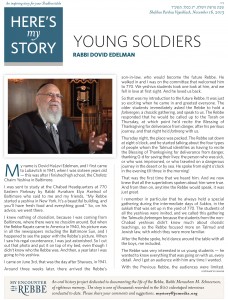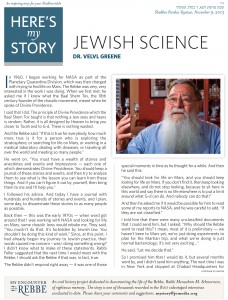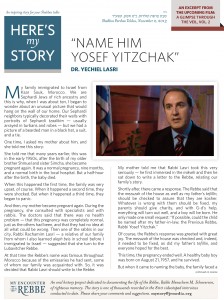Orthodox ‘Jew’
At a recent wedding of Danny Freundlich (a JEM staff member) to Chana Sara Newfield, the My Encounter team heard about an uncle and aunt of the groom that had an amazing story with the Rebbe in 1940. At the wedding, Rabbi Yechiel Cagen, director of the My Encounter project, introduced himself to Rabbi Shlomo and Faygie Levy, and asked about their story. Two days later an interview was setup in the My Encounter studio in Crown Heights.
While in Nice, France, Faigy’s father, Rabbi Yehuda Aryeh Lieberman befriended the Rebbe and would often walk with the Rebbe to Shul. At that time, Southern France was ruled by the Vichy Government – a Nazi puppet government that was very anti-Semitic towards Jews. A law was enacted that every person must register with the new government and disclose his or her religion. It was a law to make it easier on the Nazis to locate every Jew.
Shortly after the rule was enacted, Rabbi Lieberman and the Rebbe went together to the government office to register.
When the officer saw the Rebbe, he wrote down ‘religious’. When the Rebbe saw this, he insisted that they write ‘Religious Jew’. Rabbi Lieberman was amazed at the mesiros nefesh the Rebbe had to insist they write ‘Jew’. Now the Nazis could, G-d forbid, easily locate the Rebbe as a Jew.
Help with our goal of 100 interviews from now until 3 Tammuz. Join us for $1 per interview. www.dollarperinterview.com


